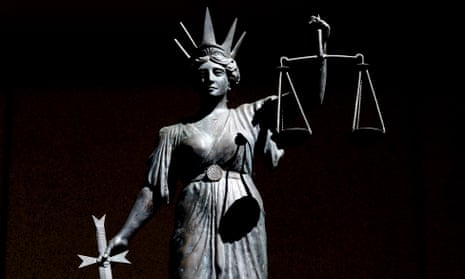Extract from The Guardian

Constitutional expert Prof Anne Twomey says the voice will create no obligations upon parliament or the executive to respond to representations.
Voice will not result in obligations on the executive or parliament, Anne Twomey says in submissions to inquiry.
Conservative critics have raised fears the voice could spur ongoing court challenges, but Prof Anne Twomey once again dismissed those concerns in a submission to the parliamentary inquiry probing the referendum.
“There is no obligation upon parliament or the executive government to respond to the representations [from the voice] or give effect to them,” Twomey wrote in a submission to the inquiry ahead of the committee’s first hearing in Canberra on Friday. “There is no obligation of prior consultation. There is no requirement to wait to receive a representation before the executive government of parliament can act.”
Witnesses for the first hearing of the joint select committee on the Aboriginal and Torres Strait Islander Voice Referendum include Tom Calma and Marcia Langton, the Indigenous leaders who chaired a co-design process for the voice under the former Coalition government.
Pro-voice campaigners Thomas Mayo, the former ABC host Kerry O’Brien and lawyers Louise Clegg and Douglas Drummond KC, who have expressed concerns about the voice, will also be witnesses.
Twomey will form part of a panel of leading constitutional lawyers appearing before the committee who have all either spoken strongly in favour of the voice or rebuffed concerns about the legal effect of its representations.
Nita Green, a Labor senator and the committee chair, said the committee was not tasked with weighing up the yes or no case. Instead, it would consider the voice’s legal ramifications.
“We’re not making a decision about the broader referendum. That’s a decision the Australian people will make, not politicians,” she told Guardian Australia.
Green said she hoped Coalition members of the committee would work to “change their party’s position” on the voice through the course of the inquiry.
Hearings will be held in Orange, Cairns and Perth, to gather views from Indigenous communities and those involved in the processes that led to the voice proposal.
Father Frank Brennan, a supporter of the voice who has raised concerns about the voice advising the executive branch of government, suggested in his submission changing the words “executive government” to “ministers of state”. Brennan claimed that there could potentially be a requirement for the voice to be given notice of pending administrative decisions – and a requirement for its representations to be entertained.
“The voice would need to know what is going on in public service offices,” he claimed.
But in her submission, Twomey said the wording of the voice had been “deliberately” chosen so as to not impose any obligation on the parliament or executive government.
“It is no more than the offering of a view,” Twomey wrote.
Twomey said the voice would likely be limited to making representations on matters “specific to [Indigenous] peoples or relevant to them adding that matters which only had an “insubstantial, tenuous or distant” connection to Indigenous people “would probably be insufficient”.
Twomey said much of the criticism had centred on what “might in the future be implied by the high court”, but that the text of the amendment, the explanatory memorandum of the bill and attorney general Mark Dreyfus’ parliamentary speech all stressed that there was no obligation on parliament or executive.
“It would be extraordinary for the high court to ignore and overturn such a clear intention, especially in the absence of any contrary words in the text,” she wrote.
In his submission, University of NSW academic George Williams, who is also on the panel, described the alteration as “safe and sound” and backed Twomey’s assessment that the voice’s representations did not confer any obligations on parliament or government.
No comments:
Post a Comment